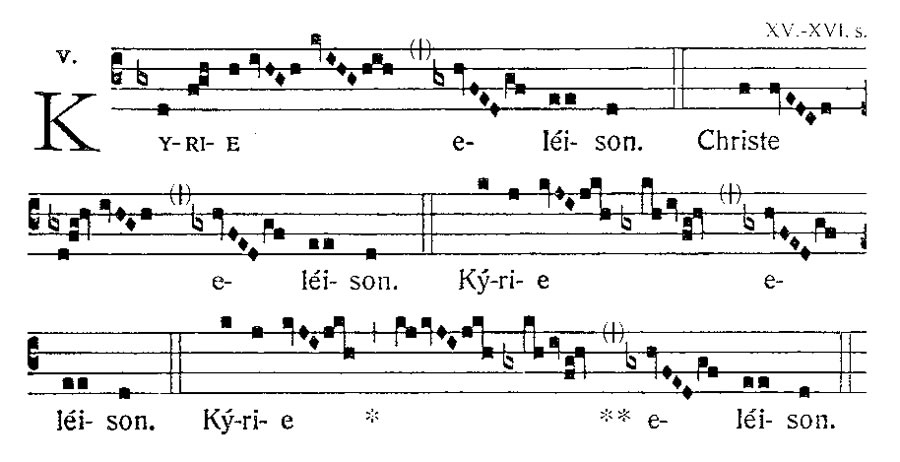
Vatican II and the Treasure of the Sung Mass
by Fr. Will Schmid | 12/10/2017 | Weekly ReflectionThe first document the Second Vatican Council produced was the Constitution on the Sacred Liturgy, known as Sacrosanctum Concilium, which was completed in 1963. Since the Liturgy is at the heart and center of the Catholic faith, the bishops wanted the world to know that liturgical reform would be at the heart and center of this historic Council.
Pope Benedict XVI, as a young theologian participating in the Council sessions noted, “The decision to begin with the liturgy schema was not merely a technically correct move. Its significance went far deeper. This decision was a profession of faith in what is truly central to the Church - the ever renewed marriage of the Church with her Lord, actualized in the eucharistic mystery where the Church, participating in the sacrifice of Jesus Christ, fulfills its innermost mission, the adoration of the triune God.”
Continue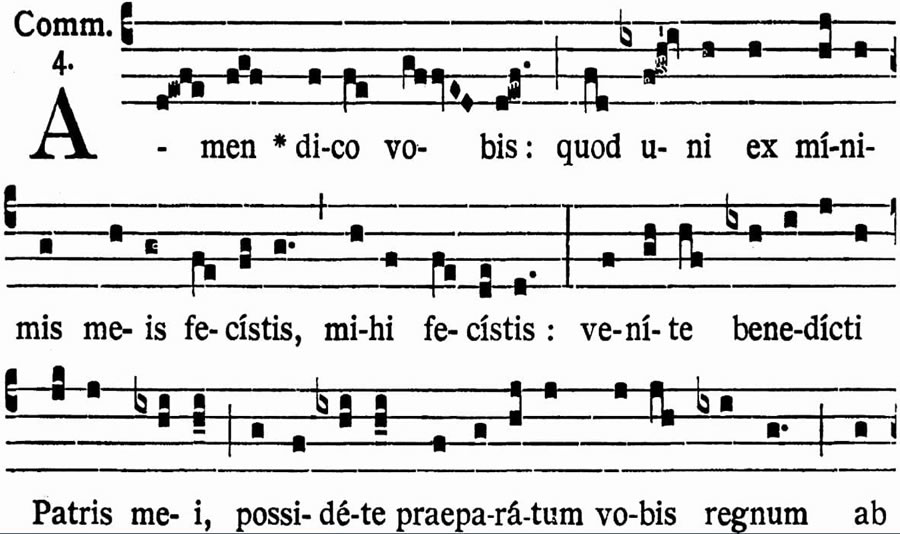
Sacred Music Reform Leading Up to the Second Vatican Council
by Fr. Will Schmid | 11/05/2017 | Weekly ReflectionIn his previous article from October 1st, Fr. Will discussed the contributions of Pope Pius X regarding Liturgical Reform in the Church. Here, he takes us through the next several decades of contributions in the area of Sacred Music.
The immediate decades following the release of Pope St. Pius X’s encyclical, Tra le solicitudini, in 1903 produced very little change in the American liturgical music scene. The phrase, “active participation,” inspired great optimism and led to many theological reflections and discussions, but the picture of worship in American Catholicism remained largely the same. The low Mass without congregational participation remained the norm and parishes struggled to help the people of God participate in singing the prescribed chants of the Solemn High Mass.
Continue
Gratitude and Hope
by Fr. Will Schmid | 10/08/2017 | Weekly ReflectionDedicated to all those who volunteer at our parish…
In 1972, nearly four and a half decades ago, a young popular German theologian and university professor by the name of Fr. Joseph Ratzinger (maybe you’ve heard of him) was invited to write an essay on the topic, “Why I am still in the Church.” His essay is one of the most beautiful I’ve ever read, and I think it provides some great food for thought as we seek to unpack these two themes of gratitude and hope.
Pope Benedict XVI’s essay is centered on the image of the moon as a way of understanding the identity and nature of the Church. The moon, as Pope Benedict explains, represents the world of men, the earthly world, the world that receives its identity and fruitfulness from somewhere else: from the sun. The light of the moon is borrowed light. It’s light is not its own, but rather the light of another. When we think of the moon, we think of the bright shining celestial body that lights up the sky and expels the darkness of the night. Because of the reflective light of the moon, we possess sight and thus, direction in the midst of dark times.
Continue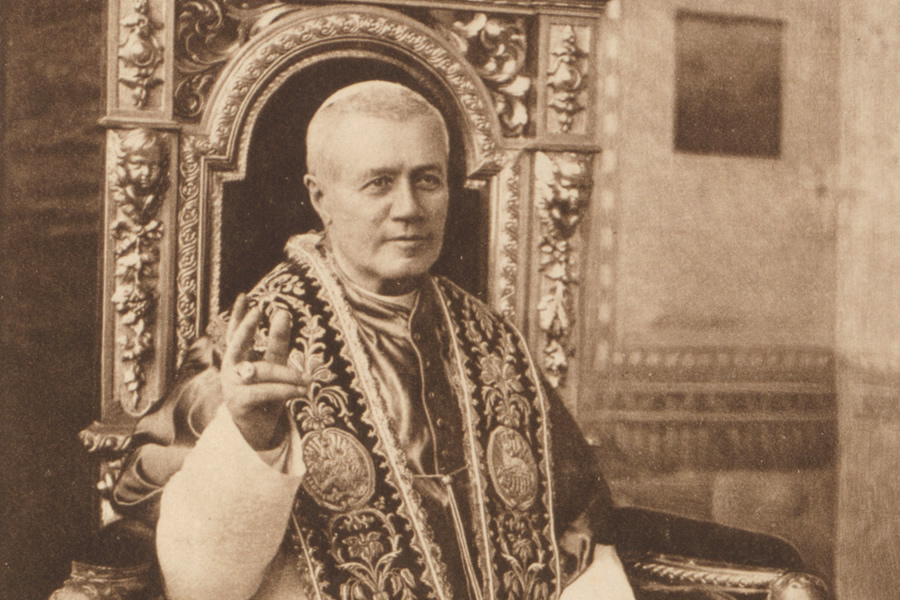
Pope St. Pius X and Liturgical Reform
by Fr. Will Schmid | 10/01/2017 | Weekly ReflectionWhen Cardinal Giuseppe Sarto inherited the chair of St. Peter in 1903 (assuming the name of Pope Pius X) the Catholic world was facing confusing times. The powerful influence of the Enlightenment, the rise of science, and a series of political, social, and intellectual upheavals in Europe resulted in a secularization of Europe. For the completely secularized European mind, the 19th century ushered in a new movement of “progress,” by which the world could throw aside the shackles of religion and provide human answers to human problems, freeing itself from the tyranny of religion, which only offered superstitions of a “supernatural order.”
Pope St. Pius X’s predecessor, Pope Leo XIII, worked tirelessly during a 25-year papacy (1878-1903) to reestablish the church’s viability within the modern world. The intellectual crown of his papacy was the famous social encyclical, Rerum novarum, in which the Church formally condemned the errors of communism and socialism, and built up a theology of worker’s rights and man’s right to private property. Yet, although Pope Leo XIII’s long papacy was an outstanding gift to the Church and the world, the secularization of Europe had done serious damage to the faith of many Catholics.
Continue
Workers in the Vineyard
by Fr. Will Schmid | 09/24/2017 | Weekly ReflectionToday’s Gospel (John 20:1-16), “The Workers in the Vineyard,” is one of the most difficult passages in all of Scripture to understand. For many of us, we fail to see the truth, goodness, and beauty that Jesus is trying to convey with this challenging parable. Most of the time, we fail to understand this Gospel because we approach it from the perspective of the kingdom of man, rather than the kingdom of God. From the perspective of the kingdom of man, Jesus presents an unjust landowner who rewards laborers who are lazy and work less, rather than providing greater compensation for those who start early and work all day.
Continue
Liturgical Question Box
by Fr. Will Schmid | 06/08/2017 | Weekly ReflectionFather Will answers some common questions about the Liturgy in the first of many articles in this new series.
What’s up with the funny looking hat you wear on special occasions?
It’s called a “biretta” and its origin dates back to the Middle Ages. It was originally used as an academic cap, but eventually made its way into liturgical use during the Renaissance. Since the 1960’s in the United Sates, it has fallen out of fashion and is rarely seen in Catholic liturgies in America. Yet, contrary to popular belief, its liturgical use was never abolished.
Continue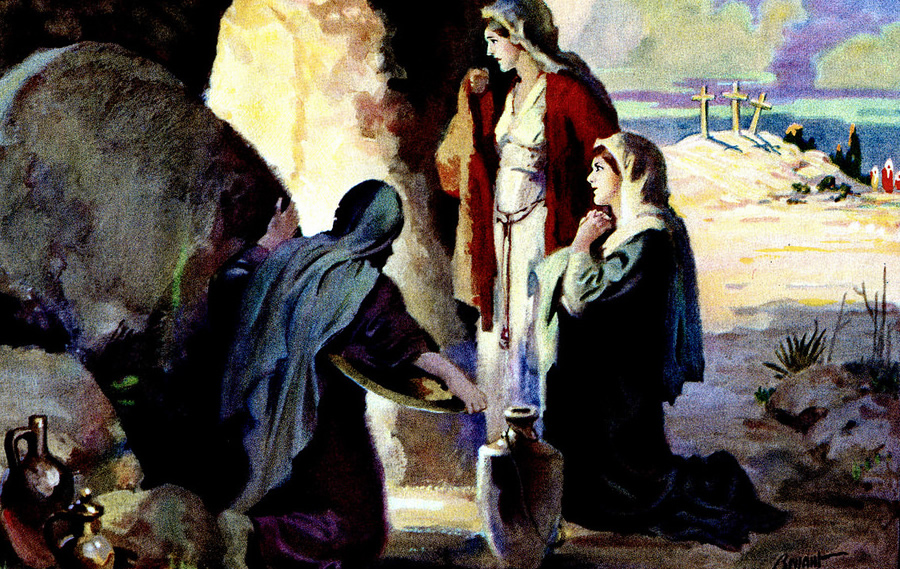
St. Mary Magdalene: A Model of Faith for Everyone
by Fr. Will Schmid | 04/16/2017 | Weekly ReflectionEvery year on Easter Sunday we hear the Gospel account of St. Mary Magdalene as the first person to experience the empty tomb and the Risen Christ. It is for this reason that she is considered to be "the Apostle to the Apostles." What a great honor the Lord bestowed upon her! What a great patron saint we have! As we celebrate the Easter sea- son, I think it would be a particular Penitent Mary Magdalene by Bartolomé Esteban Murillo, 1640 blessing for us to contemplate the life of our patroness and discover how she can draw us deeper into a relationship with Jesus Christ.
Recently, Bishop Olmsted gave me a beautiful book on our patroness titled, "Saint Mary Magdalene: Prophetess of Eucharistic Love," by Fr. Sean Davidson, a member of the Missionaries of the Most Holy Eucharist and currently serving at the Eucharistic Retreat Center in the Seminary of the Immaculate Conception in Long Island, New York. To reflect more deeply on the life and significance of St. Mary Magdalene, I would like to share with you some of the highlights of this beautiful book.
Continue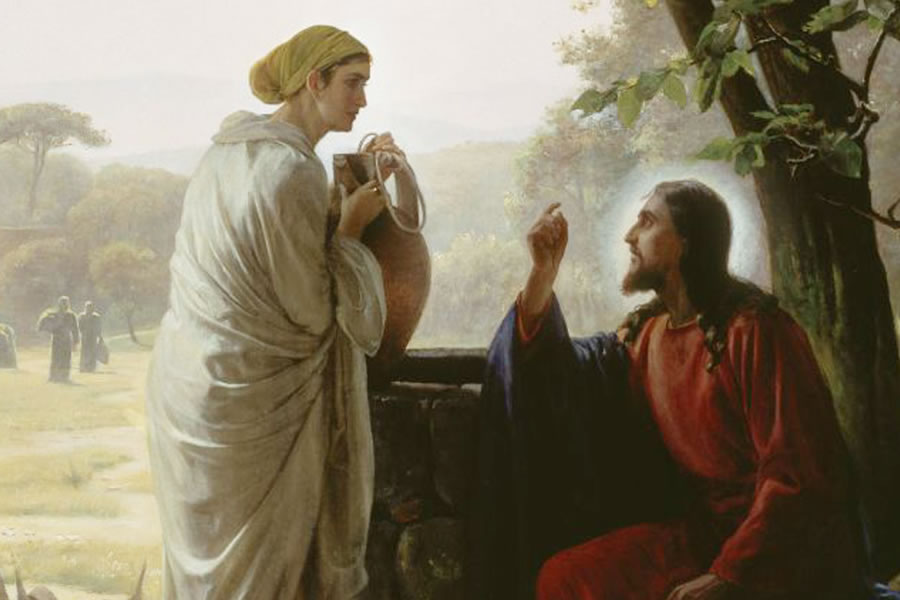
The Woman at the Well & The New Evangelization
by Fr. Will Schmid | 03/19/2017 | Weekly ReflectionWhat is The "New Evangelization?"
A new evangelization implies that there was an old evangelization. The old evangelization refers to the sharing of the gospel message with people and cultures who didn't know Jesus. This proclamation was undertaken by the apostles and missionaries who initially responded to the Lord's command to "go therefore and make disciples of all nations" (Mt. 28:19). The New Evangelization, on the other hand, refers to the sharing of the gospel message with people and cultures who already know Jesus, but who have lost touch with Him - to whom Jesus has become irrelevant. Perhaps this describes the culture we live in today.
In this Sunday's gospel, we hear the story of the Samaritan woman at the well. We also see how this woman is agent of the New Evangelization - one who re-introduces God to people that have forgotten Him. This gospel calls us all to become "women at the well." To see how she models the New Evangelization for us, let's walk through the passage together…
Continue
The Fire of the Liturgy
by Fr. Will Schmid | 01/22/2017 | Weekly ReflectionA few months ago I was concelebrating a Mass in which the song, "Set a Fire," by Will Reagan was played during the Communion Procession. This song is a very popular praise and worship piece of religious music currently played all over various Christian music stations.
As I was listening to it during the Mass I was struck by a particular line of the song repeated continuously and with overpowering emotion: "Set a fire down in my soul that I can't contain, that I can't control." As I reflected on this line and the uncontrollable emotion with which it was sung, I couldn't help but feel slightly disturbed. I asked myself, "Is this the kind of fire the Lord desires to light in our souls through the celebration of the Eucharist? One of uncontainable and uncontrollable emotion?"
Continue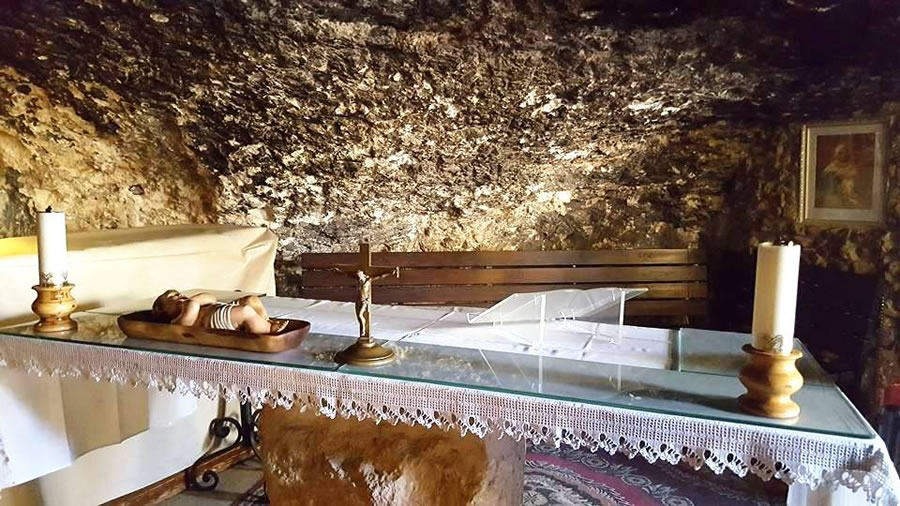
The Gift of the Mass: Reflections On My Pilgrimage to the Holy Land
by Fr. Will Schmid | 12/25/2016 | Weekly ReflectionThis past November I had the pleasure of making a pilgrimage to the Holy Land as a way of celebrating the end of the Year of Mercy. It was a wonderful experience to follow the footsteps of Jesus and to visit the many holy sites of our Lord. As a part of this pilgrimage, I was able to visit and celebrate Mass at many beautiful churches that have been constructed over these holy places. In particular, I was able to celebrate Mass in the Basilica of the Nativity, which is constructed over the cave of our Lord's birth site in Bethlehem. As you can imagine, it was a humbling experience for me as a priest to celebrate the Mass at such a significant place.
Continue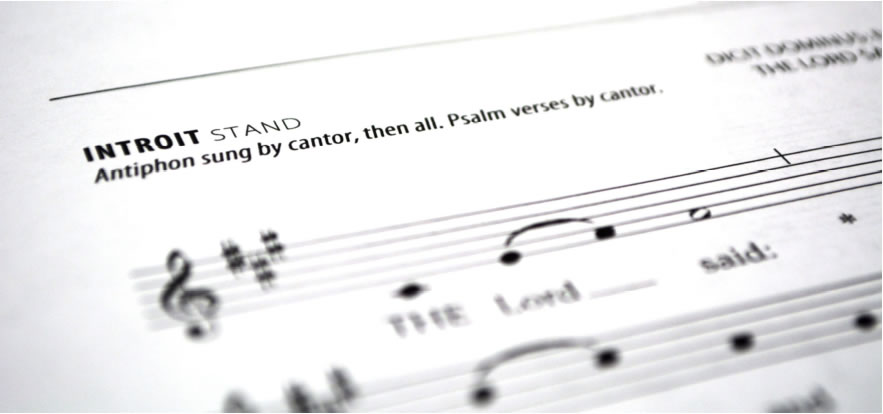
Why Antiphonal Chant in the Mass?
by Fr. Will Schmid | 11/26/2016 | Weekly ReflectionEvery Sunday as the priest, deacon, and servers process down the main aisle toward the sanctuary, the music of the Mass begins with the chanting of an antiphon, first sung by a cantor and then by the choir and entire community. After the singing of the antiphon, a psalm, or a portion of a psalm, is sung in conjunction with the antiphon. This process of a sung antiphon/ psalm is then repeated at different moments throughout the Mass. The particular antiphons and psalms that we use each week are given to us by the Church and are known as the "propers" of the Mass - meaning they are the proper chants chosen by the Church for that particular Liturgy.
Continue